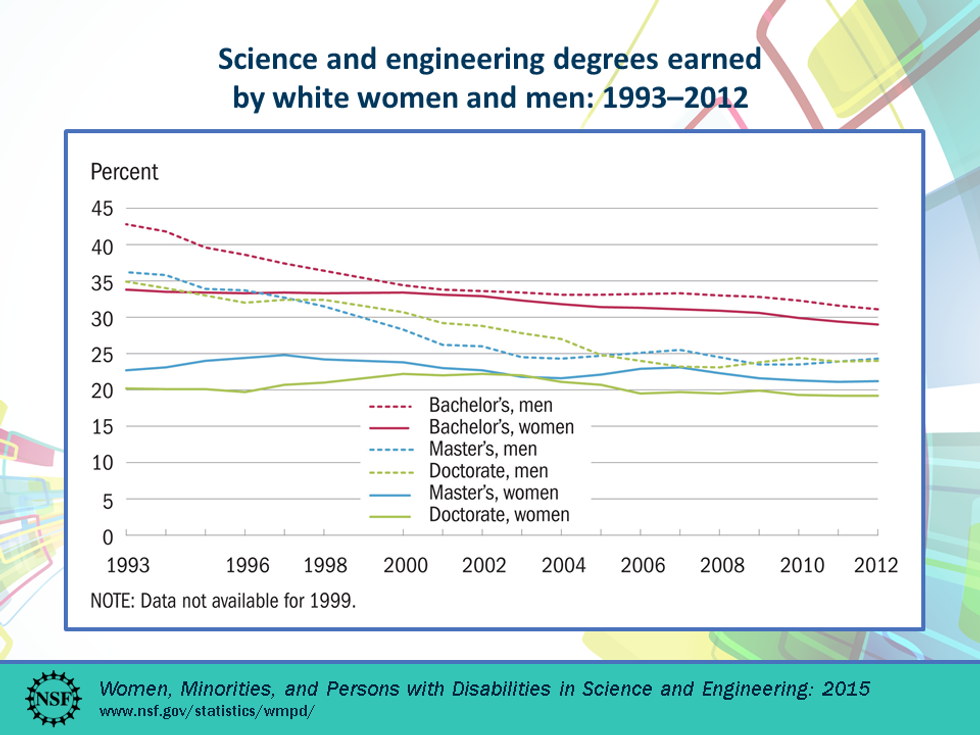Female millennials are stuck, suspended between two opposing sides: the side of the past passive female and the more progressive active role that femininity can now portray. Women of our generation are expected to somehow become a hybrid of these two sides to embody the idea of femininity. This is why in majors such as those pertaining to STEM (Science, Technology, Engineering, and Mathematics) fields, which still carries the stigma of a "boys' club," it is especially important to continue the involvement and encouragement of young women.
Maybe, if you’re not a woman in STEM, you're asking yourself why you should care about these women and the majors they chose to pursue. The truth is women have revolutionized a lot of aspects of STEM fields but are continuously underrepresented. 
Women in STEM also continuously receive very little recognition for achievements in these fields. For instance, I’m sure many people familiar with science fields know of Marie Curie or Florence Nightingale, but what about Stephanie Kwolek, inventor of many synthetic fabrics including those for work gloves and bulletproof vests, or Katharine Blodgett inventor of non-reflective glass something we take advantage of in car windshields, eyeglasses and computer screens, even Melitta Bentz the inventor of coffee filtration system, how many of you think of her while getting Starbucks? We can rattle off numerous male inventors and scientists yet struggle to name a few successful women in STEM.
In the words of Marian Edelman, “You can’t be what you can’t see.” Women in the STEM field have hardly had anyone to use as a role model for their pursuits. Due to this, women are often hesitant to enter the STEM fields, and even if they do they often lose their confidence faster than males. The women in your life need encouragement. They need to know that women can succeed in the STEM field as well, which they can. So, ladies, if you're reading this: you are just as likely to succeed in the STEM field as men, believe in yourself.
There are initiatives being taken to help inspire young women considering one of these majors or careers. One of these is a program on the University of Kentucky’s campus called IAmAWomanInSTEM. The goal of the program is to match girls considering getting a degree in a STEM with a mentor, a woman who has already devoted herself to STEM and has become successful in her career. There are also classes that coincide with the program but many girls are just student ambassadors. I am a member of this initiative and I believe that it can make great change in the community.
However, one does not need to be a part of an organization to simply provide encouragement. Women in STEM deserve the recognition and encouragement from their male counterparts and from other women. So talk to the women in your life about STEM, and let them know that they have the capacity to be successful in a STEM career. Tell them to not be discouraged. With both men and women working the STEM fields think of where we could be in a few years time. Think of the great strides we, as a nation, could make in mathematics or computer science with a more diverse mindset in the field. Think of the strides we could make to a more equal nation. Think of how we are a united nation, one of the same, and it is up to us to set an example to future generations through encouragement and promotion of one another.





















